NABIL bank unveils SDG Flag at Head Office aiming to support SDGs
Commitment to work towards sustainable banking
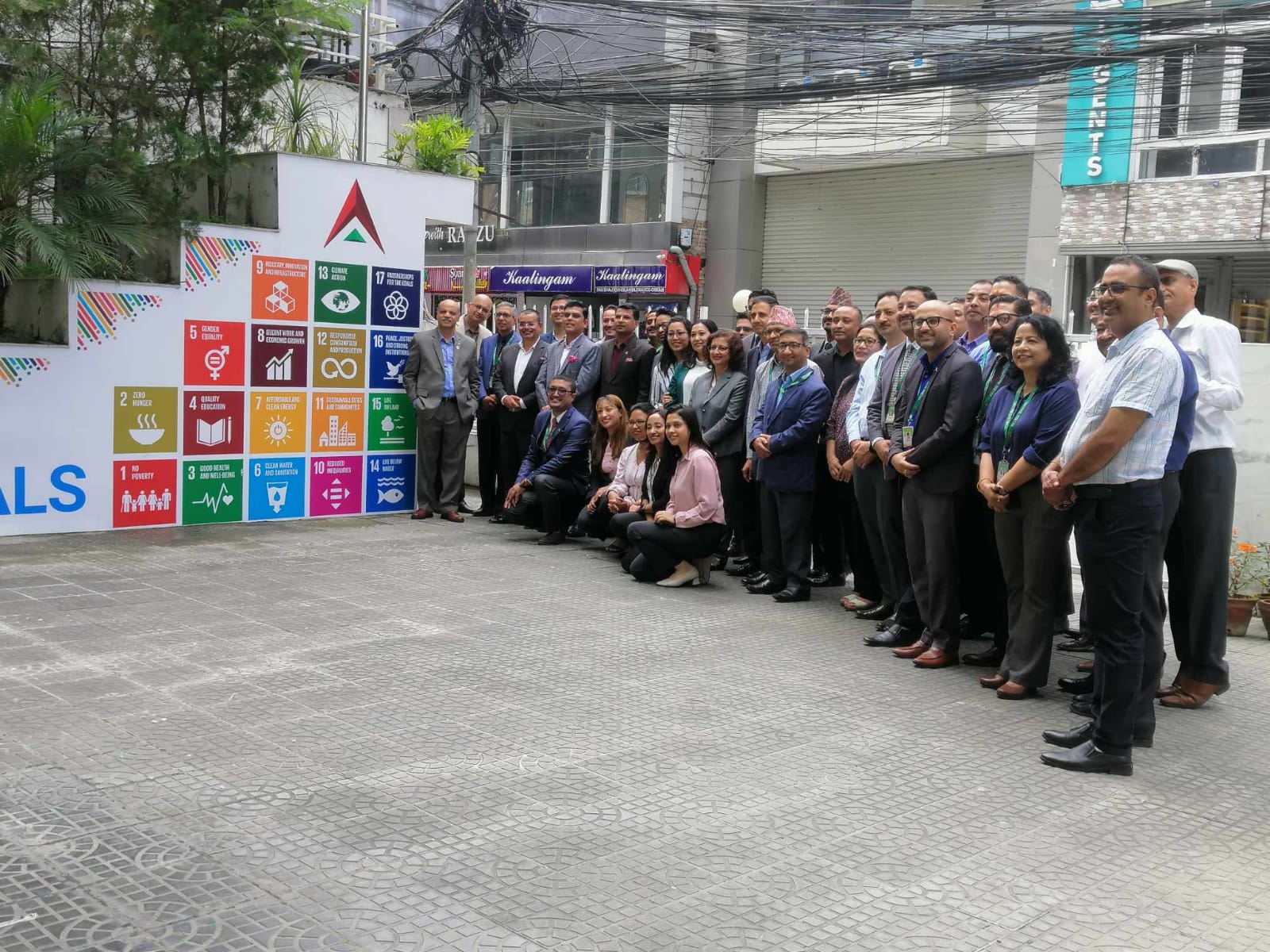
KATHMANDU, Sep 25: Nabil Bank, on Monday, the 25th of September, organized an SDG Unveiling Program at the Bank’s Head Office in Tindhara, Kathmandu. With the aim of supporting Sustainable Development Goals (SDGs) and for the demonstration of the Bank’s work in sustainable banking, the program was organized.
The program started with a brief introduction to the purpose of the event by the Master of Ceremonies (MC), and then the MC called the Chairman of the Nabil Bank, Upendra Poudyal, for the unveiling of the SDG Flag.
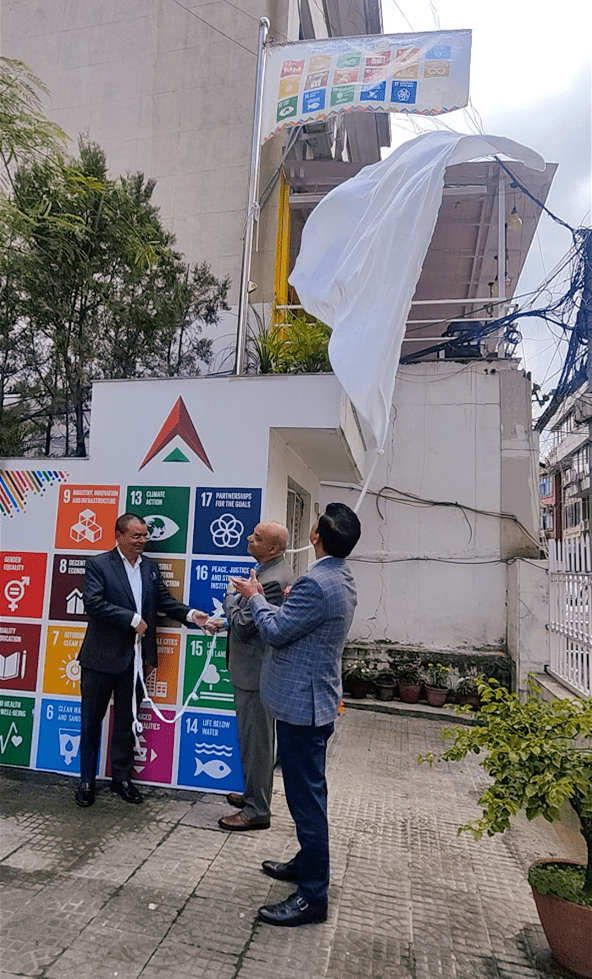
After the SDG Flag was unveiled, Chairman Poudyal gave a short briefing about Sustainable Banking. He highlighted the 17 Sustainable Development Goals, namely, No Poverty; Zero Hunger; Good Health and Well-being; Quality Education; Gender Equality; Clean Water and Sanitation; Affordable and Clean Energy; Decent Work and Economic Growth; Industry, Innovation and Infrastructure; Reduced Inequalities; Sustainable Cities and Communities; Responsible Consumption and Production; Climate Action; Life Below Water; Life On Land; Peace, Justice and Strong Institutions; and Partnerships for the Goals. This set of 17 goals which was adopted by all UN member States in 2015, is an urgent call for action on all countries.
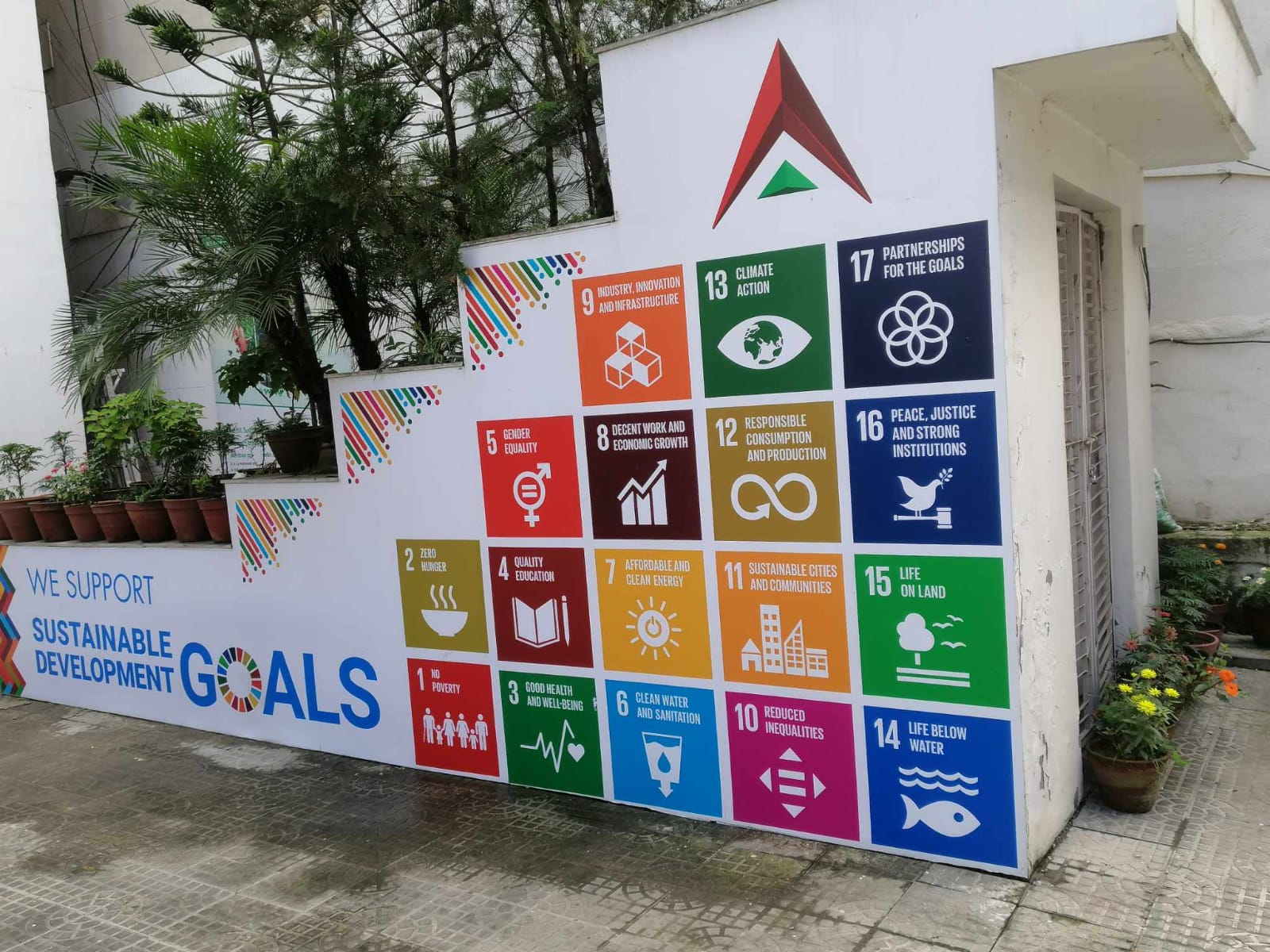
Expressing the commitment towards SDGs, Chairman Poudyal added that we must incorporate the goals in order to save the planet. As Nepal is also committed to acting on the issue of climate change in line with the Paris Agreement, an international treaty on climate change adopted on the 25th of September, 2015, he said that Nabil Bank also shares the same conviction to decrease carbon emissions.
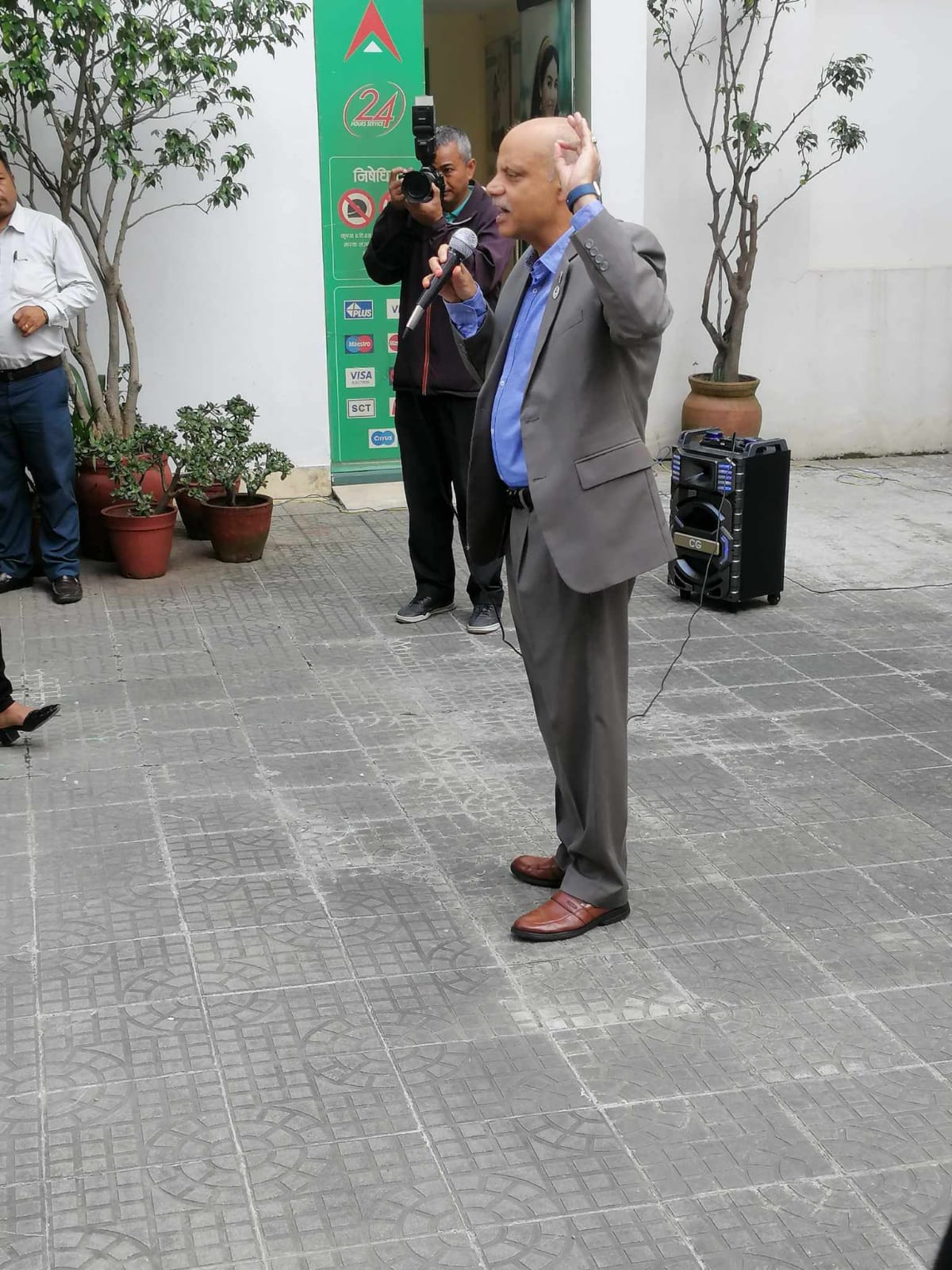
Saying, “Banking touches the lives of all”, he added that the bank is analyzing which projects are Environment friendly and which are not, and is committed to making a positive impact accordingly for Net Zero Emissions.
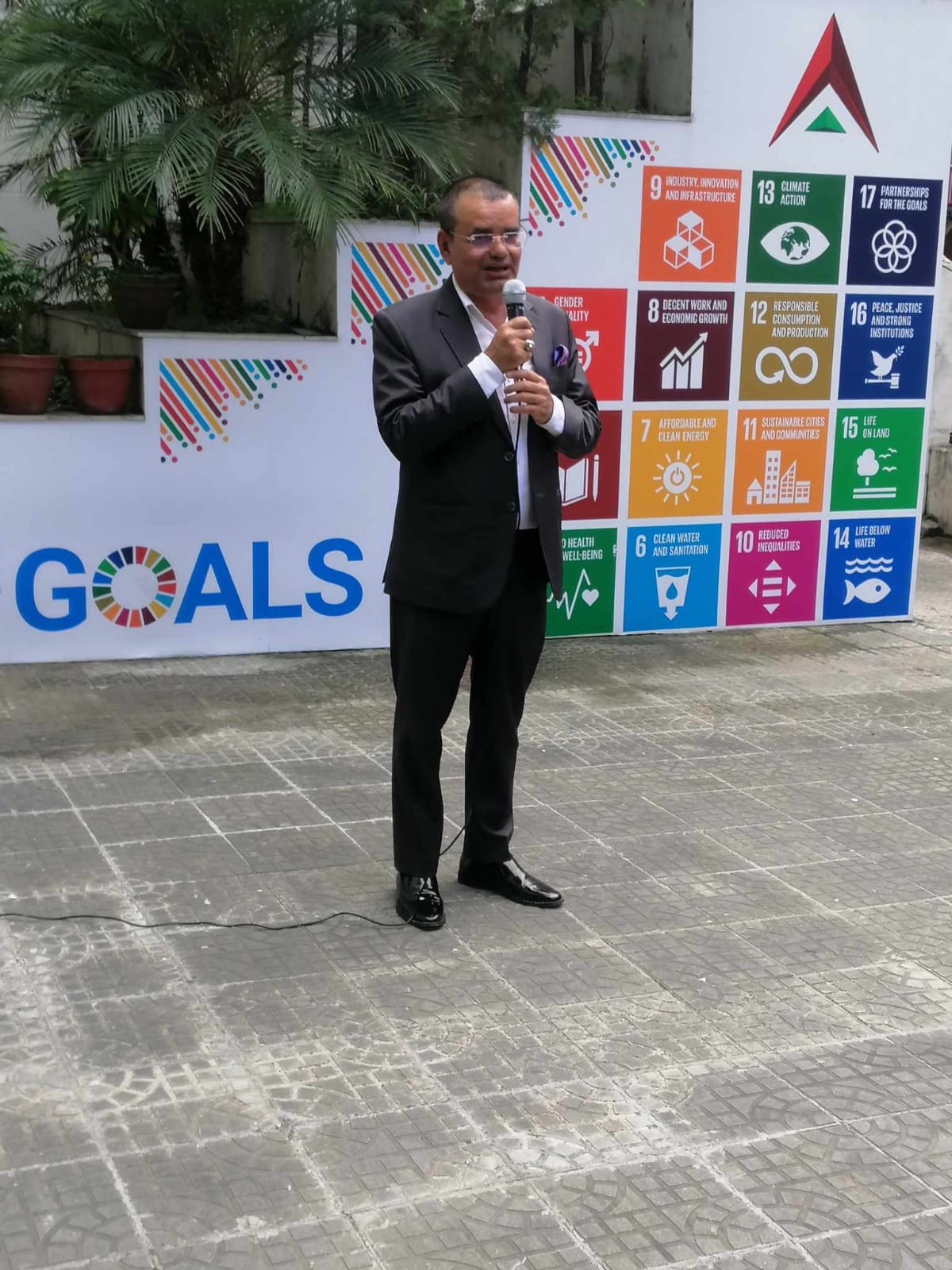
Following that, the Chief Executive Officer (CEO) of Nabil Bank, Gyanendra Prasad Dhungana, added the closing remarks that the Bank is committed to integrating sustainable development into the DNA of banking activities itself in accordance with the SDGs. The program ended with a photo session.
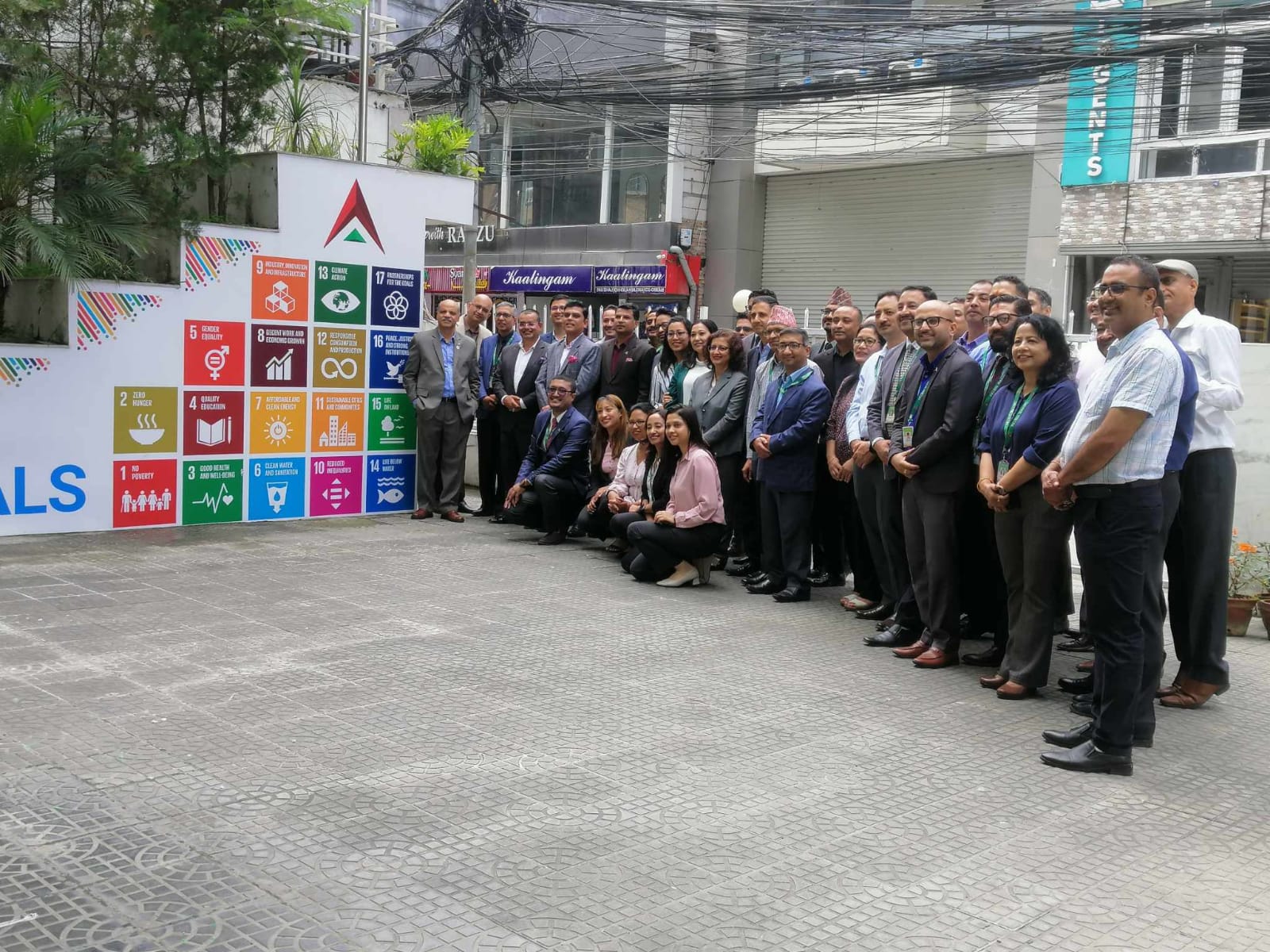
Shortly after, during a discussion with the Deputy General Manager of Nabil Bank, Adarsha Bajgain, the sustainability journey of the Bank was explained. He explained that the key to Net Zero Carbon Emissions is financing, and banks play the biggest roles in financing. He further explained Debt financing and Equity financing, and how much impact they make in banking. He said that Debt from Banks makes up 80% of financing and that the main impact on climate change will be made through Banking.
Bajgain informed that Nabil Bank has obtained membership of the Partnership for Carbon Accounting Financials (PCAF), which is a global partnership of financial institutions that work together to develop and implement a harmonized approach to assess and disclose the Greenhouse Gas (GHG) emissions associated with their loans and investments, on January of 2021, and is part of the global initiative to measure and disclose the GHG emissions associated with its portfolio of loans and investments. NMB Bank and Laxmi Bank are two other banks in Nepal to have obtained the membership of PCAF, he informed.
Under the PCAF agreement, Nabil Bank has been promoting the use of renewable energy sources such as Hydropower and Solar Power by financing various projects. According to the Nabil Bank report, the highest emissions are generated from Construction Materials, followed by Airlines and then from Integrated Telecommunication Services.
He informed that the Bank has started a school of social entrepreneurship by working along with the Tribhuwan University in all seven provinces of the country, with a 6-month Fellowship course and a 3-month Certification, in which many have already participated. He gave us an example of an app called Galli Maps developed by Raj Bikram Maharjan, a participant of the fellowship.
Nabil Bank launched Nabil Sustainable Banking on the 29th of June 2021, started working on Digitization with programs such as Fone Loan for banking with zero paperwork, and has done various partnerships with government bodies, NGO/INGOs, and other institutions. The Bank has signed 25 Memorandum of Understanding (MoU) to promote financial literacy and access to finance. On the 28th of November 2022, the bank signed the MoU with Doko Recyclers for managing waste, Bajgain said.
Nabil Bank will give loans and provide support to those who are working to preserve the environment and tackle climate change, and the Bank will make the process easy and simple for them, he stated further.
Adding that various other efforts have been made by the bank, such as rainwater harvesting, recycling papers like envelopes, etc., he said, “Even the staff practices are environment friendly, and I myself utilize ventilations in my room most of the time than depend on Air Conditioners.”
After he highlighted that an initiative must be taken by every individual in order to fight climate change and help save the environment, the discussion ended.



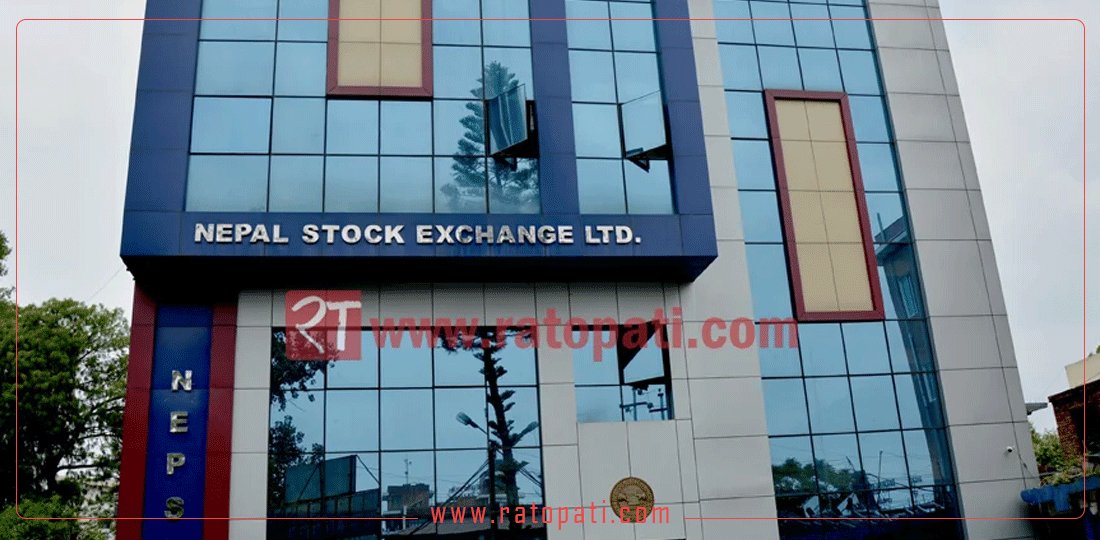
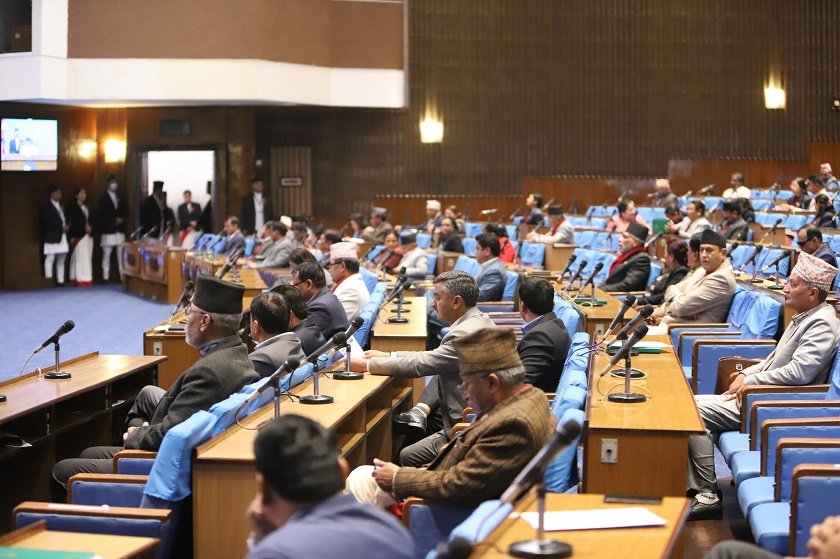



Leave Comment